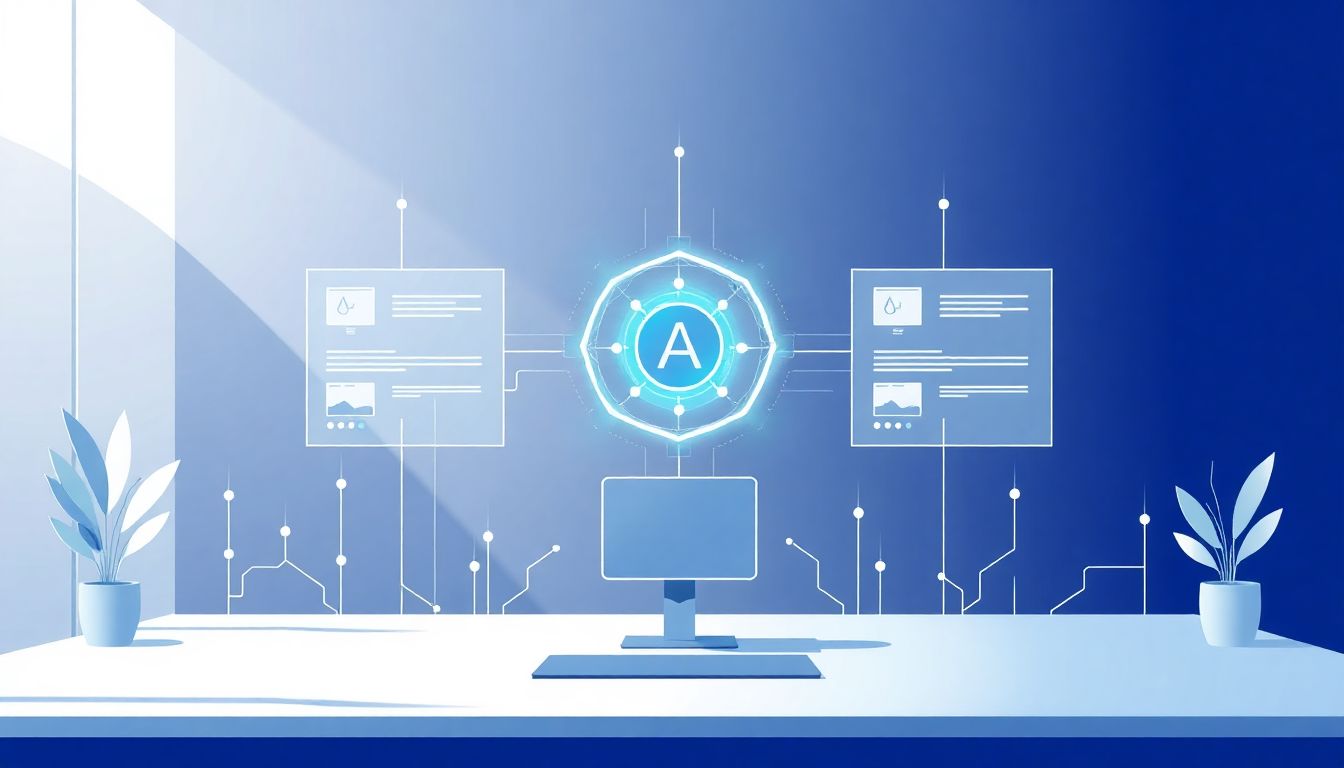AI hubs are central places where teams work together to build and share artificial intelligence tools, making AI more accessible across different areas. By 2025, they’ll play a key role in helping countries and industries develop smarter solutions while encouraging collaboration and offering resources. Platforms like sellaitool.com are part of this ecosystem, providing a marketplace for AI assets that supports growth and innovation for everyone.
Key Takeaways
Key Takeaways
- AI hubs will grow into essential spaces for collaboration, resource sharing, and real-world AI deployment across industries by 2025.
- They will focus on connecting universities, companies, and governments to boost innovation and speed up AI development.
- AI hubs will drive economic growth with more jobs, investments, and new AI-powered products, especially in major markets like the US.
- Training and workforce development will be key, with hubs offering courses and labs to prepare people for AI jobs at all levels.
- Partnerships between academia, industry, and governments will be crucial for the success of AI hubs—and for sharing data and infrastructure.
- Ethical AI practices will be prioritized to ensure transparency, fairness, and societal trust in AI solutions.
- Open data and shared tools will accelerate innovation by allowing faster access to datasets, models, and resources for all.

What Is an AI Hub and Why Will It Matter in 2025?
An AI hub is basically a central place—like a community, platform, or physical center—that brings together researchers, developers, companies, and governments to work on artificial intelligence projects. Think of it as a meetup spot for all things AI, but with a twist: it supports research, innovation, and putting AI into real-world use across different sectors like healthcare, agriculture, or finance. By 2025, AI hubs are expected to be more than just labs—they’ll act as ecosystems, fostering collaboration and resource sharing on a much larger scale.
These hubs help create a space where idea-sharing is encouraged, and resources like datasets, computing power, and expert advice are readily available. They push the adoption of AI by making advanced tools accessible to startups and big corporations alike. Plus, platforms like sellaitool.com are vital marketplaces within this environment, where you can buy, sell, and license AI tools and assets efficiently. Essentially, AI hubs are shaping the future of AI development by making it easier for everyone to contribute and benefit from AI innovations.
Key Purposes of AI Hubs in 2025
In 2025, AI hubs serve several core purposes. First, they act as collaboration magnets, connecting universities, industry players, and startups. This teamwork speeds up breakthroughs and innovation cycles. Second, they supply resources—like open datasets, high-powered computers, and mentoring—to help both new and seasoned AI developers build better solutions. Third, AI hubs support a thriving AI economy by attracting investments, fostering startups, and creating new jobs—it’s about turning ideas into products that make a real difference.
And let’s not forget, many AI hubs focus on responsible AI deployment. They emphasize ethics, transparency, and inclusion, making sure AI benefits everyone—no one left behind. In this way, AI hubs aren’t just about tech; they’re about shaping a smarter, fairer society, and that’s why they’ll be crucial in 2025 and beyond.

6. How AI Hubs Drive Economic Growth and Job Creation in 2025
AI hubs are not just about tech; they have a real hand in boosting economies. In 2025, the global AI market hits around $391–$407 billion. That kind of value means more jobs—about 97 million people worldwide will work in AI roles this year.
AI hubs encourage startups and established companies to create new products, which leads to more business openings and economic activity. For example, the US AI industry alone is worth nearly $73.98 billion in 2025, expected to grow nearly 27% annually. This growth sparks a chain reaction—that’s more jobs, higher salaries, and more investments flowing into local communities.
To tap into this, local governments and entrepreneurs should focus on building connection points like accelerators, incubators, and training programs at AI hubs. This helps make sure the workforce can fill the new roles that AI creates. Also, promoting collaboration between academia and industry means the innovations coming out foster economic expansion for years to come.
7. How AI Hubs Support AI Skills Development and Workforce Education
With AI becoming a key part of business and daily life, training people for these roles is a must. By 2025, around 58% of U.S. companies are using AI to improve customer experience, and they’ve realized the importance of having skilled staff to handle this tech.
AI hubs are serving as training grounds—offering workshops, certification programs, and hands-on labs to upskill workers. For instance, some hubs partner with universities to create tailored courses on machine learning or data science. These programs prepare people for AI-related jobs, whether they’re fresh graduates or seasoned professionals looking to adapt.
Say you’re a small startup or a big company—getting your team trained in the latest AI techniques can be the difference between staying competitive or falling behind. The trick is to collaborate with local training institutions and make use of online resources—many AI hubs now offer accessible, real-world focused learning options.
8. The Role of Collaboration and Partnerships in AI Hubs’ Success
No one builds AI alone. Successful AI hubs lean heavily on partnerships—between universities, government agencies, startups, and big corporations. For example, the Université Bourgogne Europe’s AI Hub connects researchers from different countries, sharing ideas that cross disciplines and borders.
By sharing resources—like data, infrastructure, and funding—these collaborations help speed up innovation. Think of it like a team sport; the more players involved, the better your chances of scoring big. The Massachusetts AI Hub regularly hosts joint projects among academia, industry, and government to tackle real problems like climate change or health diagnostics.
To foster these partnerships, leaders should set clear goals and create platforms for open communication. Regular events, joint research grants, and shared facilities make it easier to get everyone working in sync towards common AI goals.
9. The Need for Ethical AI and Responsible Innovation in 2025
As AI becomes more woven into our lives, questions about ethics are no longer optional—they’re essential. Around 77% of devices now include some embedded AI, raising concerns over privacy, bias, and transparency.
AI hubs are stepping up by promoting responsible AI practices—like establishing ethical guidelines, conducting fairness audits, and ensuring data privacy. For example, many European hubs are working on frameworks to prevent discriminatory AI outcomes and protect user rights.
If you’re setting up or working within an AI hub, consider implementing ethical review processes and collaborating with social scientists to assess societal impact. Responsible innovation isn’t just good ethics; it builds public trust, which is vital for wider adoption.
10. The Role of Open Data and Shared Resources in Accelerating AI Innovation
No one wants to reinvent the wheel. That’s why open data and shared resources are a big deal in 2025. Nearly 49% of companies are leveraging big data via AI to make smarter decisions, and open data platforms speed up this process.
AI hubs often serve as repositories where datasets, models, and tools are shared freely or at low cost. For instance, platforms like OpenAI and others provide access to models that startups can customize for their needs without starting from scratch. This approach significantly cuts down development time and costs.
If you’re looking to make breakthroughs, look for hubs that promote data sharing and collaboration. Start by identifying open datasets relevant to your sector and see if the hub you’re working with hosts sharing events or communities—those are gold mines for innovation.
FAQs
An AI Hub is a central platform that supports AI research, innovation, and deployment. By promoting collaboration and providing resources, AI hubs help accelerate development and address societal challenges effectively in 2025.
Leading AI Hubs include regional centers like Africa’s Sustainable Development Hub and the Massachusetts AI Hub. Their main goals are driving sector-specific AI solutions, fostering collaboration, and supporting local innovation efforts.
AI Hubs improve access to tools and resources, encourage collaboration across sectors, and promote practical applications of AI. This accelerates adoption and enhances research efforts worldwide in 2025.
Future AI Hubs are expected to grow more diverse, emphasize ethical AI use, and foster global collaboration. They will play a key role in driving inclusive innovation and maintaining regional competitiveness.